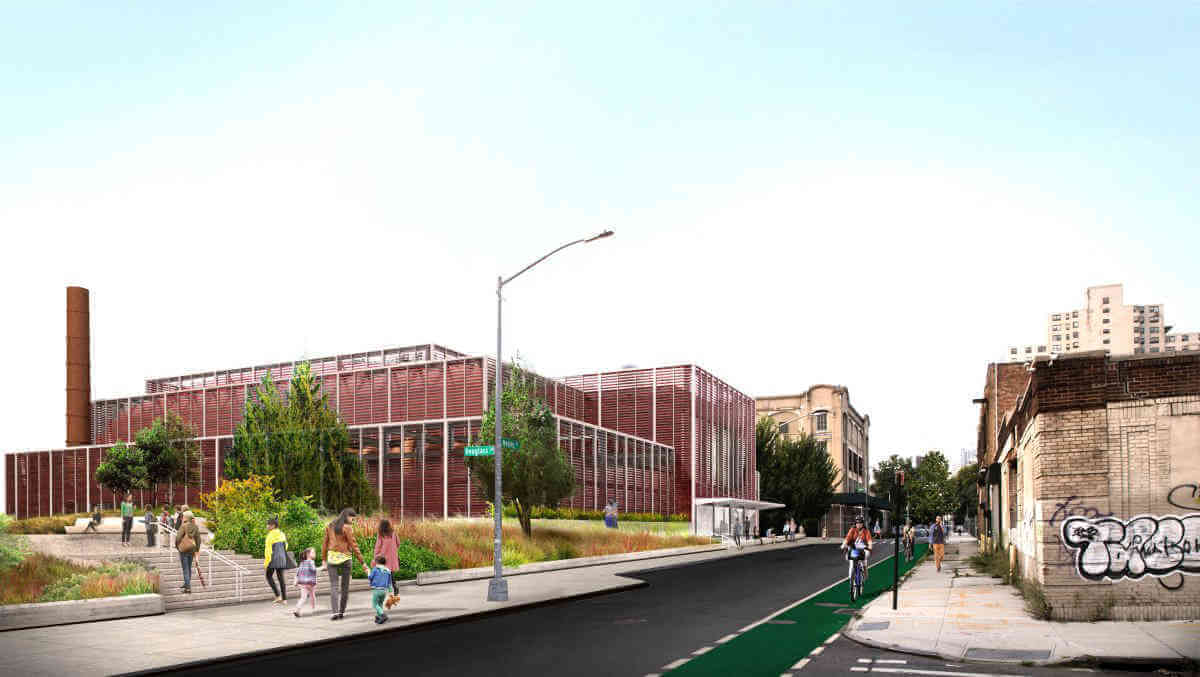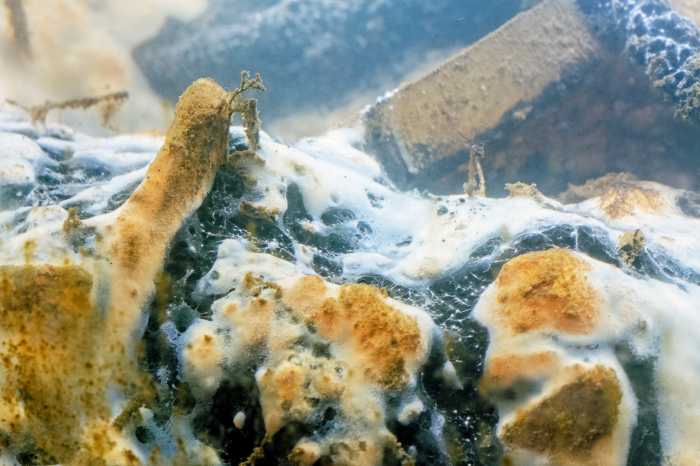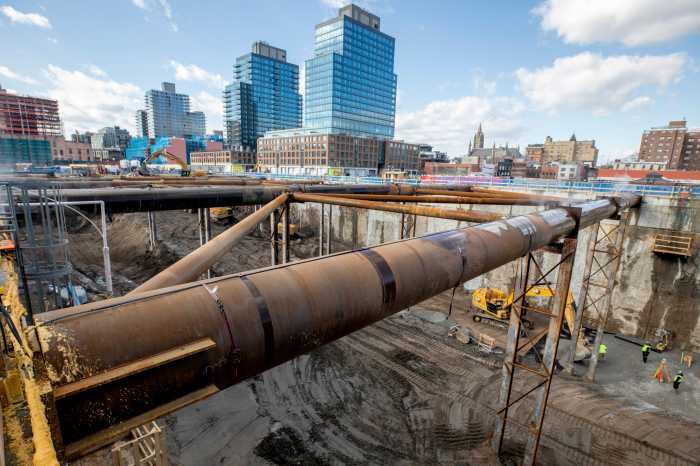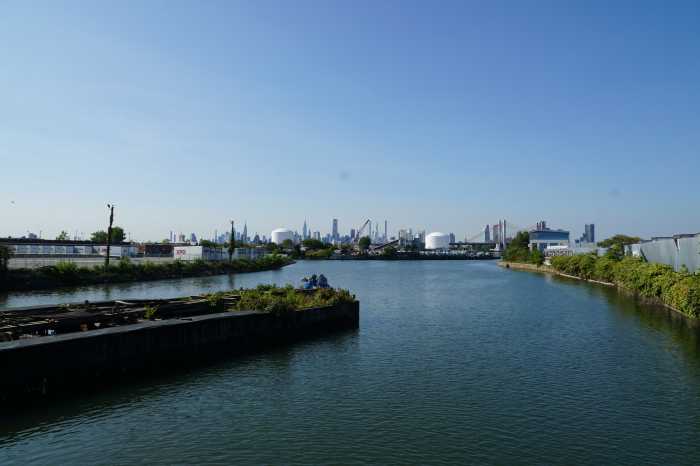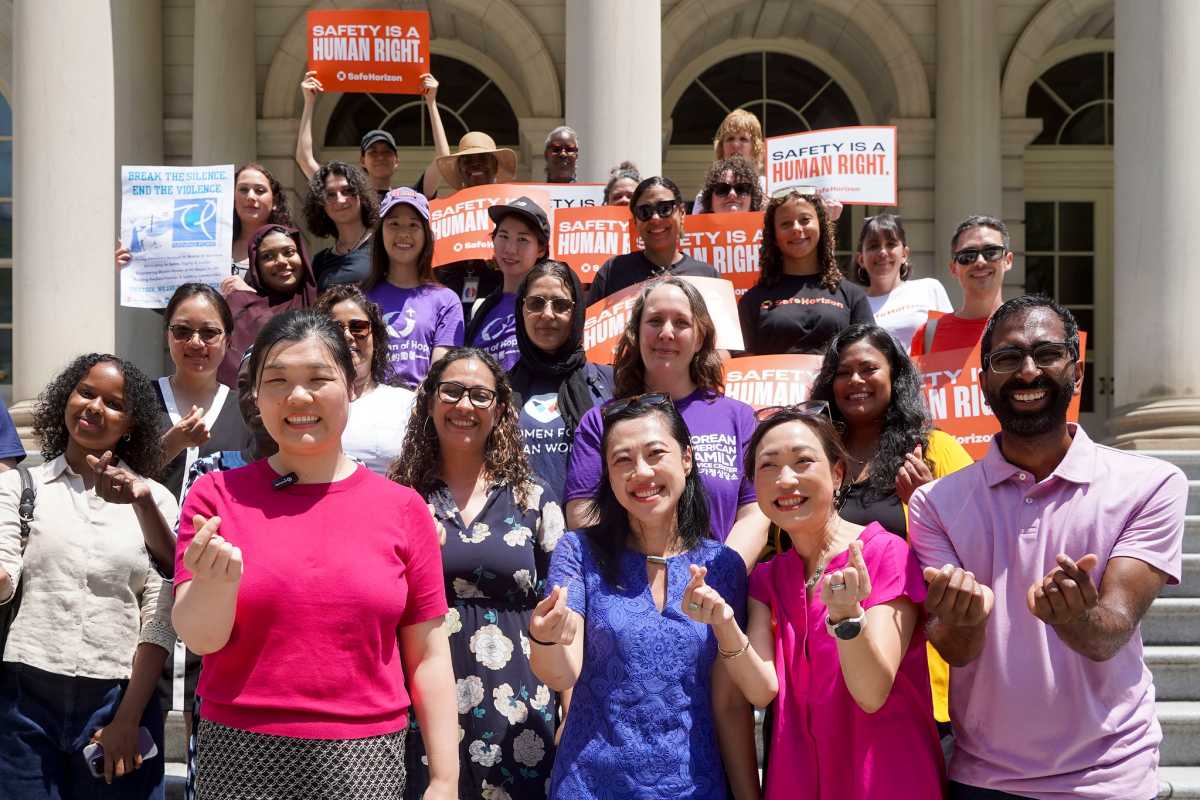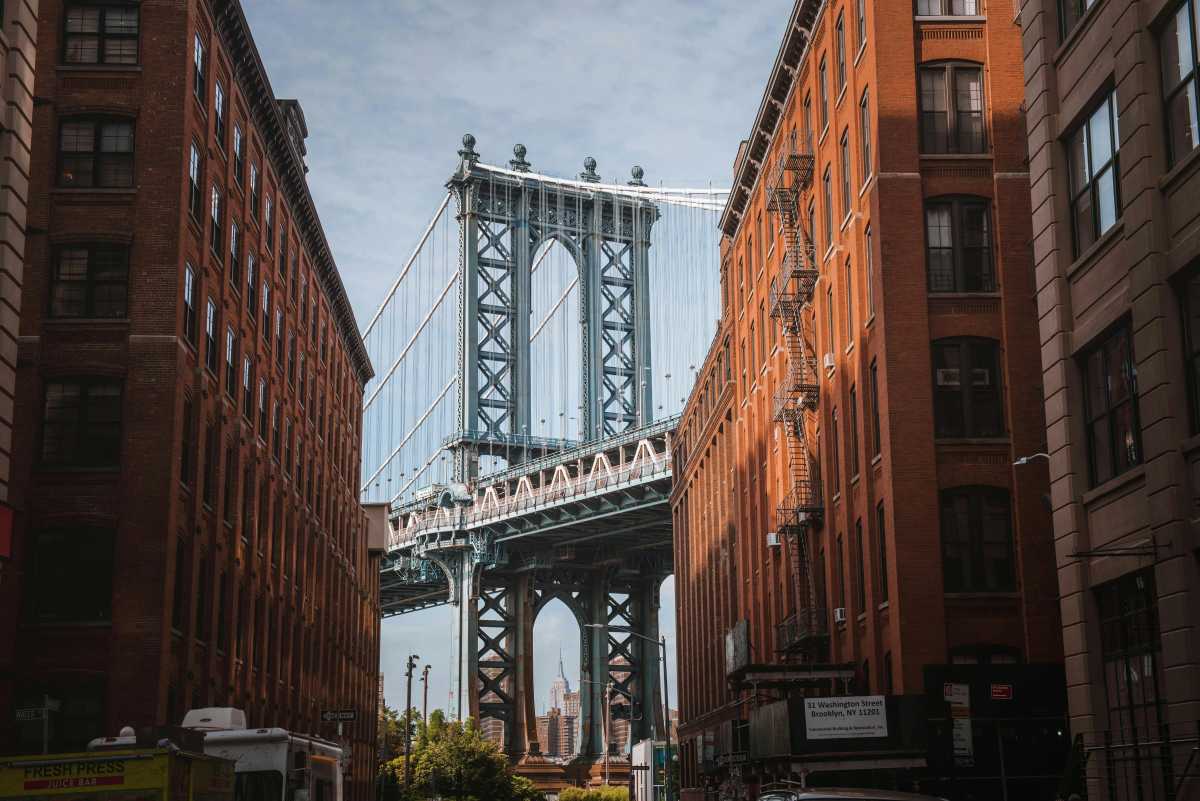Citing a massive coronavirus-related revenue shortfall, city environmental officials are looking to delay a crucial part of the multi-million dollar cleanup of the Gowanus Canal by up to 18 months, according to the federal rep overseeing the fetid waterway’s cleansing.
Honchos at the city’s Department of Environmental Protection need federal permission to postpone the long-planned construction of an eight-million gallon tank at the head of the canal, and a four-million gallon tank at the Fourth Street Turning Basin — which would be delayed by 12 and 18 months respectively.
The tanks are designed to capture raw sewage and stormwater runoff, which currently flush directly into Brooklyn’s Nautical Purgatory, as part of the canal’s Superfund cleanup.
“In essence what [DEP] requested was an extension for the completion of the work of the two tanks by one year for the upper tank and by a year and a half for the middle tank,” Environmental Protection Agency’s project manager for the cleanup Christos Tsiamis told the Gowanus Canal Community Advisory Group, a local watchdog organization, on July 28. “They stated that they required these extensions in order to make adjustments vis-a-vis their new budget situation.”
A spokesman for DEP said the project is funded entirely by water bills paid by New Yorkers and that this revenue stream has dried up during the health crisis.
“Since the onset of the pandemic, those revenues are down due to both lower water consumption and delayed customer payments, requiring a review of all current and future capital projects,” said Edward Timbers in a statement on July 29.
EPA’s regional administrator Peter Lopez followed up with DEP’s request on Tuesday, asking them for more details of how the current revenue constraints would hinder building the tanks, according to Tsiamis.
The Feds gave Big Apple bureaucrats until August 18 to provide those specifics, and also demanded that they deliver designs for the filtration facility known as the headhouse above the upper tank at Bond and Nevins streets.
By that deadline, the city officials must also announce their scheme to demolish and reassemble a corner wall of bricks salvaged from the century-old Gowanus Station building that currently lives at the site and incorporate it into the new facility. Government agencies butted heads over the bricks in March after the city’s DEP tried to get away with using faux-aged cinderblocks to save on costs.
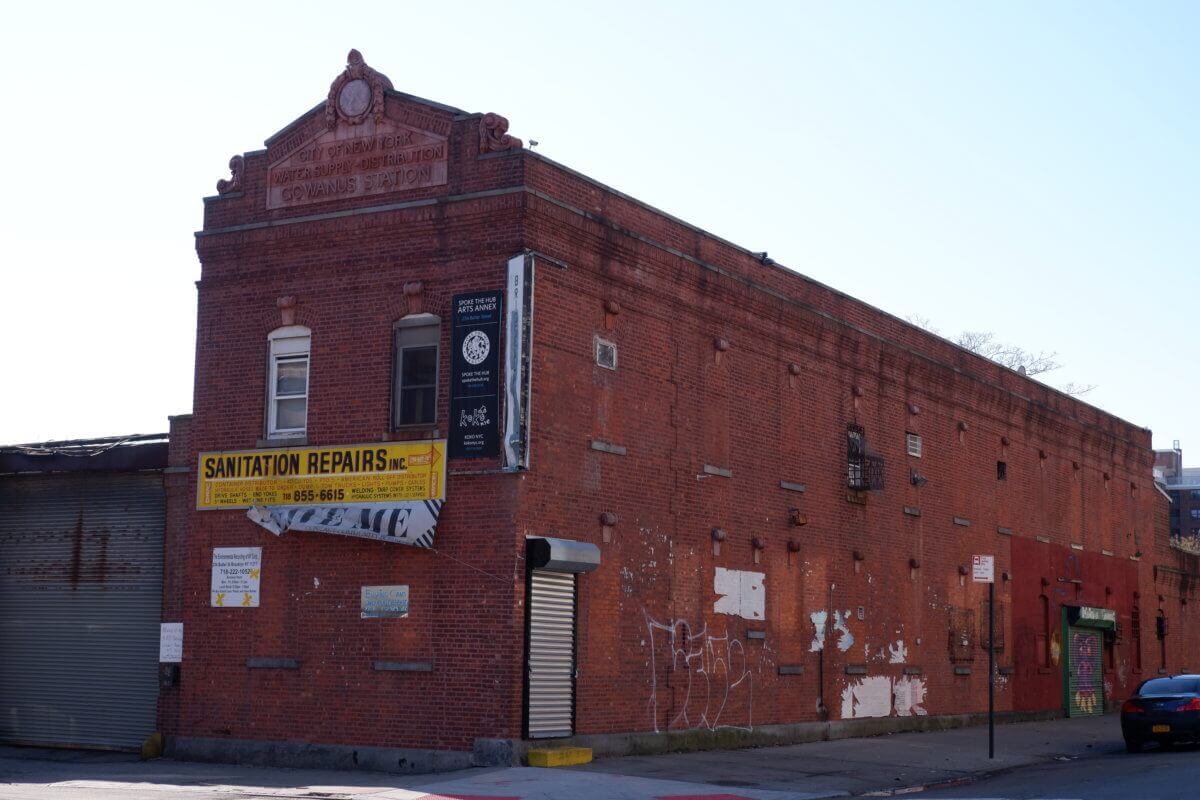
If they get their approval, it wouldn’t be the first time the city has delayed the tank project — which has been in the works since 2013.
Most recently in 2018, DEP proposed building a 16-million-gallon tunnel beneath the canal instead, which stalled progress for the better part of two years before Lopez rejected the tube in 2019.
Tsiamis said at the Tuesday meeting that the feds also tried to get the city, along with other historic polluters tasked with cleaning the canal — collectively labeled potentially responsible parties, or PRPs — to speed up their impending scrub of the channel, urging them to start dredging the first portion of the canal in October instead of November.
“I bring that [up] because I think I want to alert the CAG that they should hold the feet of the PRPs to the fire,” Tsiamis said.
Timbers, of DEP, did not immediately provide follow-up comment on the one-month delay the agency and other PRPs requested for the start of dredging.
The cleanse of the canal’s upper third, starting at its head at Butler Street down to the Third Street Bridge, will officially begin September and run until July 2023, followed by two more sections.
Tsiamis urged CAG members to not let the city and the other main PRPs like National Grid try and pull a fast one on them in the years to come for the cleanup.
“There will be sophisticated explanations and so on and so forth but I just want to again alert the CAG that the PRPs should be held accountable and they should be asked to act more in the interest of the community that has suffered for the pollution for such a long time and not to, in particular, for their own personal financial interest,” the federal official said.
National Grid did not immediately provide comment.


